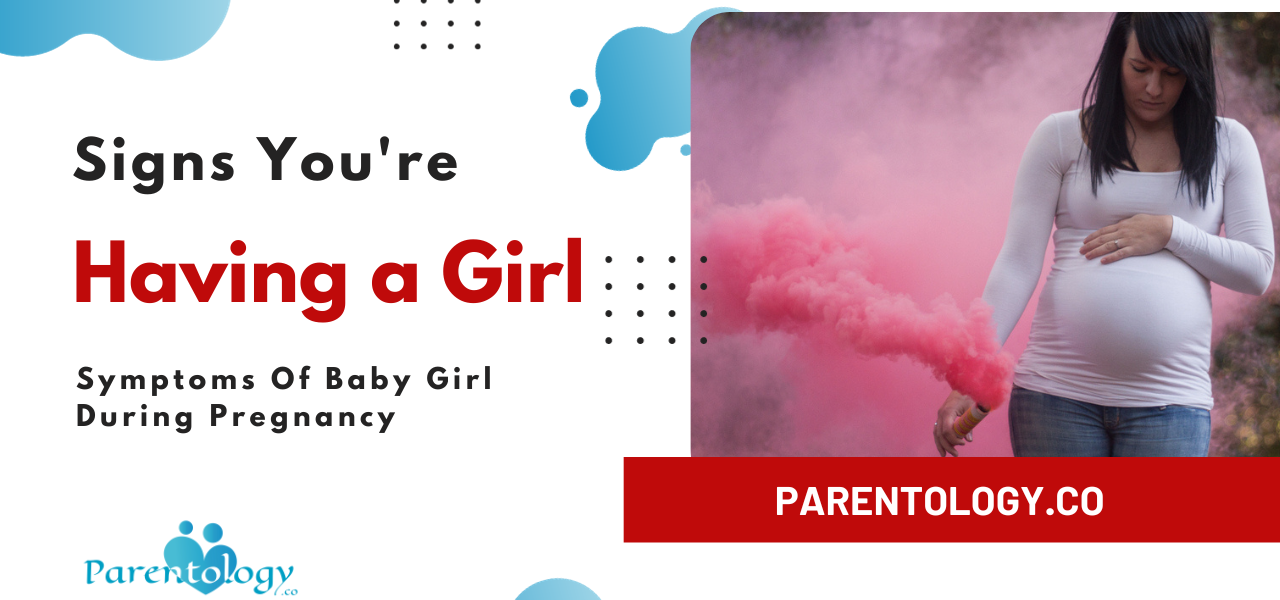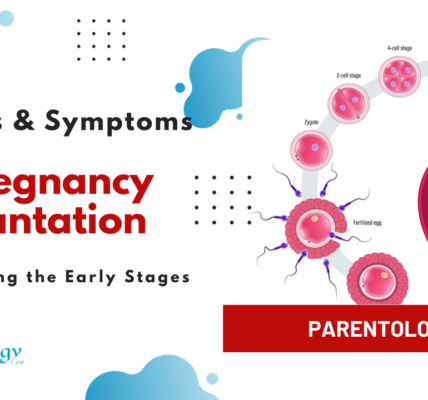Signs You’re Having a Girl: Symptoms Of Baby Girl During Pregnancy – Myths Vs Facts
Anticipating the arrival of your little one can be an exhilarating experience, filled with curiosity about your baby’s gender. While various old wives’ tales and myths abound, discerning the signs you’re having a girl during pregnancy from the myths versus facts can be both intriguing and crucial for expectant parents. Let’s delve into the nuanced world of symptoms suggesting signs you’re having a girl and uncover the truth behind these notions.
Understanding the Signs You’re Having a Girl
As expectant parents, decoding the signs you’re having a girl can be captivating. Many cultural beliefs and popular myths have perpetuated notions about specific symptoms indicating the gender of the unborn child. Here, we’ll dissect these signals, exploring their credibility and separating myths from medically substantiated facts.
Cravings: A Salty-Sweet Conundrum?
One prevalent belief revolves around the mother’s cravings—sweets indicating a girl and salty or savory foods predicting a boy. Contrary to this popular notion, there is limited scientific evidence supporting this claim. Cravings during pregnancy can vary significantly and are not reliable indicators of your baby’s gender.
Heart Rate: Racing Towards Gender Clues?
Another myth is associated with the fetal heartbeat. It’s believed that a faster heart rate (above 140 beats per minute) indicates a baby girl. However, medical studies have shown no significant correlation between heart rate and the baby’s gender. Fetal heart rates naturally fluctuate during pregnancy and aren’t reliable indicators for determining gender.


Skin Changes: Glowing or Breaking Out?
Some suggest that carrying a girl may result in changes to the mother’s skin, such as acne breakouts or a radiant glow. While hormonal fluctuations during pregnancy can cause skin changes, there’s insufficient scientific evidence to link these changes directly to the baby’s gender.
Mood Swings and Emotional Rollercoasters
Pregnancy hormones are known to cause mood swings, and folklore indicates that expecting a girl might lead to more emotional turbulence. However, emotional variations during pregnancy are individual experiences and aren’t indicative of the baby’s gender.
Myths Versus Facts: Debunking Common Beliefs
-
Myth: Carrying High or Low?
The position of the baby bump has been linked to gender predictions. The myth suggests carrying high indicates a girl, while carrying low signals a boy. However, the position of the baby bump is influenced by various factors like body shape and the baby’s position, not gender.
Fact: Medical Tests for Gender Determination
For an accurate determination of your baby’s gender, medical tests such as ultrasound or amniocentesis are reliable methods. These tests provide a clearer picture of the baby’s gender, offering accurate results unlike old wives’ tales.
-
Myth: Morning Sickness Severity and Gender Prediction
There’s a belief that severe morning sickness suggests carrying a girl. While morning sickness varies in intensity among expectant mothers, it isn’t a reliable indicator of the baby’s gender. Hormonal changes during pregnancy often cause morning sickness, and its severity differs from person to person.
Fact: Genetic Determination of Baby’s Gender
The gender of the baby is determined by genetic factors. It’s the biological contribution of chromosomes from both parents that determines whether the baby will be a boy or a girl. Medical advancements have allowed gender determination through genetic testing with high accuracy.
Gender-Specific Baby Bump Shape: Fact or Fiction?
Another common belief revolves around the shape of the baby bump. Some suggest a round-shaped bump indicates a girl, while a more pointed bump implies a boy. However, the shape of the baby bump is influenced by various factors like muscle tone and the position of the baby, rather than the baby’s gender.


Cultivating a Positive Pregnancy Experience
Amidst the excitement of predicting your baby’s gender, it’s essential to focus on fostering a positive and healthy pregnancy experience. Here are some tips for expectant mothers:
Balanced Nutrition and Hydration
Prioritize a well-balanced diet rich in essential nutrients, vitamins, and minerals. Stay hydrated by drinking plenty of water, aiding your baby’s development and ensuring your own well-being.
Prenatal Care and Regular Check-ups
Attend prenatal appointments regularly to monitor your baby’s growth and health. These check-ups allow healthcare professionals to provide guidance and support throughout your pregnancy journey.
Exercise and Rest
Engage in gentle exercises suitable for pregnancy, like walking or prenatal yoga, to maintain fitness and alleviate stress. Equally important is getting ample rest to recharge your body.
Emotional Well-being
Surround yourself with positive support systems, share your feelings, and seek help if experiencing emotional distress. Mental well-being is integral to a healthy pregnancy.
The Role of Hormones in Pregnancy
Hormonal changes play a pivotal role in pregnancy and often lead to various physical and emotional alterations. While some beliefs link specific symptoms to the gender of the baby, it’s crucial to understand the broader impact of hormonal fluctuations:
Hair Growth and Texture Changes
Some myths suggest that if your hair becomes lustrous and thick during pregnancy, it might indicate a baby girl. However, hormonal changes can affect hair texture and growth for each individual differently, irrespective of the baby’s gender.
Estrogen and Its Effects
Estrogen levels rise significantly during pregnancy and contribute to several physiological changes. While certain beliefs connect high estrogen levels to carrying a girl, these fluctuations are part of the natural pregnancy process, impacting various bodily functions.
Dietary Preferences and Their Interpretation
It’s a widespread notion that a preference for citrus fruits or sweets might suggest carrying a girl. However, individual dietary choices during pregnancy are influenced by taste preferences and nutritional needs rather than the baby’s gender.
Parenting Preparation: Gender-Neutral Approach
Amidst the excitement of predicting your baby’s gender, consider adopting a gender-neutral approach to parenting. Focus on creating a loving and supportive environment for your child, irrespective of gender stereotypes. Embrace colors, toys, and activities that encourage open-ended play and exploration.


Partner Involvement and Bonding
Encourage your partner to actively participate in your pregnancy journey. From attending doctor’s appointments to engaging in discussions about parenting styles, fostering this involvement strengthens the bond between both parents and prepares them for the arrival of their baby.
Coping with Gender Disappointment
Occasionally, expectant parents may experience feelings of disappointment if their desired gender prediction does not align with the baby’s actual gender. It’s essential to acknowledge these emotions, communicate openly with your partner, and seek support from friends, family, or a counselor if needed.
Embracing the Reality
It’s fascinating to explore the myths and facts surrounding the signs indicating the gender of your baby. However, relying solely on these notions can be misleading. While these beliefs add excitement to the pregnancy journey, the most reliable methods for determining your baby’s gender are through medical tests.
For further insights and a comprehensive guide to pregnancy and parenting, check out Parentology.co for an array of informative articles.
FAQs – Frequently Asked Questions about Signs You’re Having a Girl
Q1: Can the baby’s movements indicate its gender?
A1: No, fetal movements are not indicative of the baby’s gender. Movements depend on the baby’s activity and position.
Q2: Is it true that carrying wider means you’re having a girl?
A2: The width of the baby bump is not a reliable indicator of the baby’s gender. It varies due to multiple factors.
Q3: Does the baby’s position in the womb indicate its gender?
A3: No, the baby’s position in the womb is not linked to its gender. It’s determined by the baby’s comfort and movements.
Q4: Are baby gender prediction tests available?
A4: Yes, there are non-invasive prenatal tests (NIPT) that can determine the baby’s gender with high accuracy through a blood sample.
Q5: Can the baby’s movements indicate its gender?
A5: No, fetal movements are not indicative of the baby’s gender. Movements depend on the baby’s activity and position.
Q6: Is there a particular sleeping position associated with the baby’s gender?
A6: Sleeping positions during pregnancy do not determine the baby’s gender. It’s essential to prioritize comfortable sleeping positions for the mother’s well-being.
Q7: Is severe morning sickness more common in pregnancies with baby girls?
A7: Severe morning sickness can occur in pregnancies irrespective of the baby’s gender. It’s influenced by hormonal changes and varies among expectant mothers.
Q8: Does the baby’s position in the womb reflect its gender?
A8: No, the baby’s position in the womb is unrelated to its gender. It depends on the baby’s comfort and movements rather than gender.
Q9: Can heartburn is indicating signs having a girl during pregnancy?
A9: Heartburn is a common pregnancy symptom caused by hormonal changes and the growing uterus, not indicative of the baby’s gender.
Q10: Are mood swings stronger in pregnancies carrying baby girls?
A10: Mood swings during pregnancy are typical due to hormonal fluctuations and aren’t specifically linked to the baby’s gender.
Conclusion: Celebrating the Miracle of Pregnancy
In conclusion, the suggesting signs you’re having a girl during pregnancy are intriguing, yet they often lack scientific substantiation. While these myths contribute to the excitement of the journey, relying on medical tests for accurate gender determination is essential. Embrace the joyous anticipation and trust the medical expertise to welcome your bundle of joy into the world.
To delve deeper into effective strategies and resources, explore Parentology.co.
Remember, each pregnancy is unique, and the truest blessing lies in the arrival of a healthy and happy baby, regardless of gender.
Infographics


